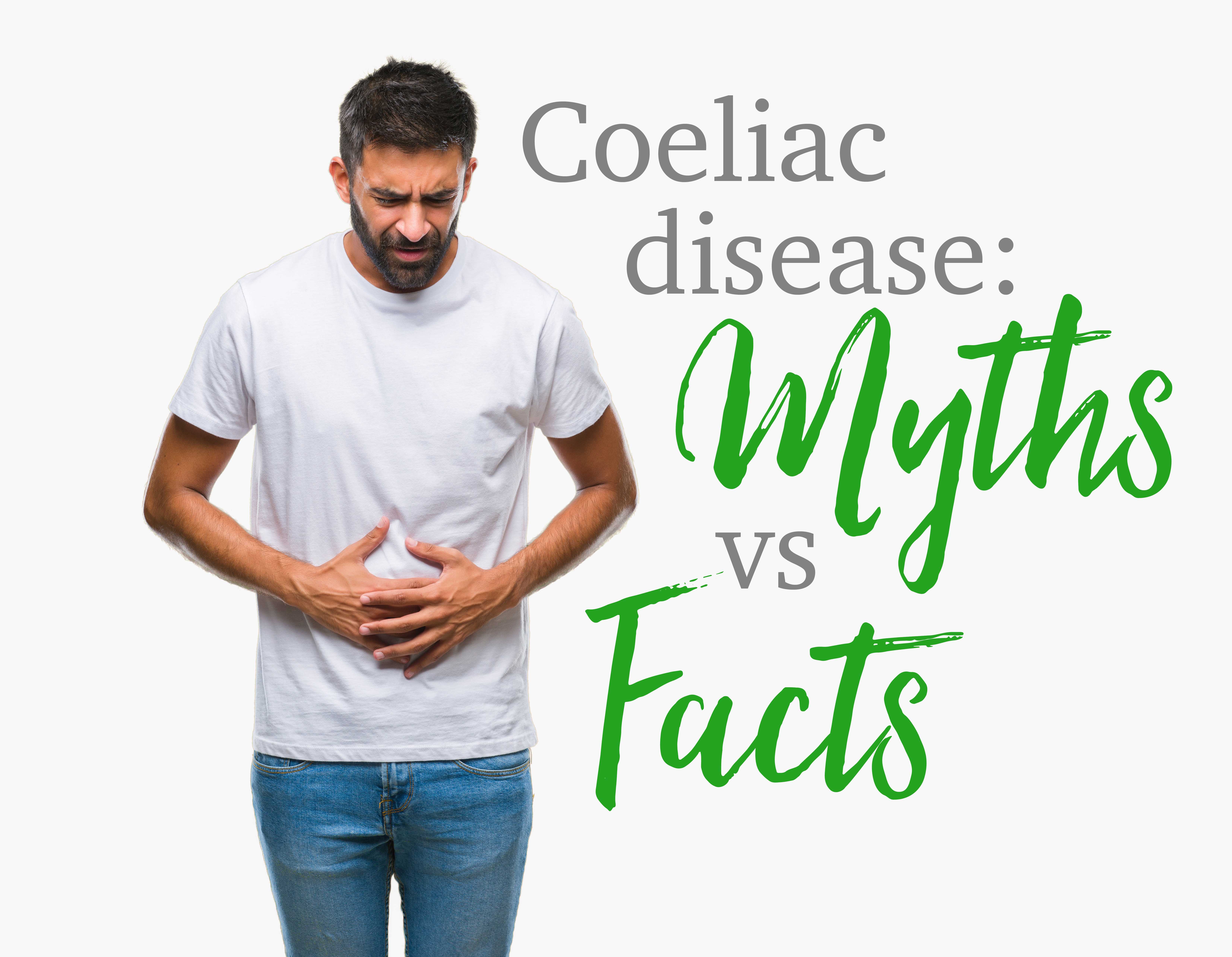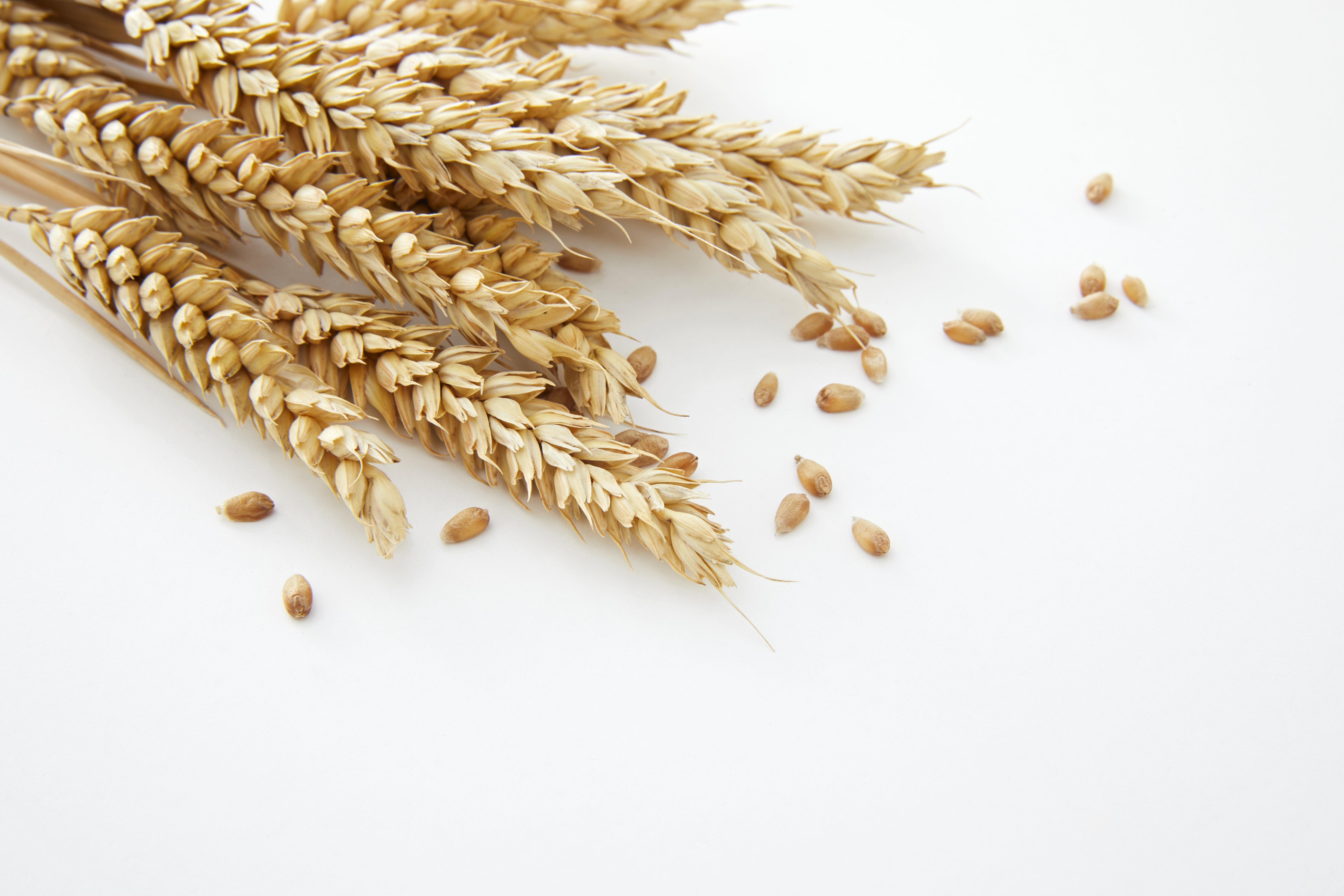With so much conflicting information and advice available about gluten, coeliac disease and gluten intolerance, we have enlisted the help of gastroenterologist professor David Sanders and Schär dietitian Melissa Wilson to help readers differentiate between fact and fiction!

Myth #1: Eating gluten every now and again won’t hurt
Fact: Dietitian Melissa Wilson says: “Coeliac disease is a lifelong condition, which requires the strict exclusion of gluten from the diet as eating it causes damage to the lining of the gut. Even very small amounts of gluten can lead to gut damage in people with coeliac disease. If you accidentally eat gluten, you may experience symptoms – these will vary between people and depend on a number of things, including how much you’ve eaten, how sensitive you are and how long you have been on a gluten-free diet. While accidents can happen, the important thing is to remember to return to a gluten-free diet to avoid further symptoms and damage to the gut lining.”
Myth #2: Coeliac disease is not very common
Fact: Gastroenterologist professor David Sanders explains: “Coeliac disease actually affects 1 in 100 people in the UK, making it more common than people may think. Under diagnosis is a big problem as symptoms can be similar to other conditions such as irritable bowel syndrome (IBS) – only 24% of people with coeliac disease are clinically diagnosed.”
Myth #3: Coeliac disease is just a food allergy
Fact: Melissa explains: “This is a myth that frustrates a lot of sufferers. Coeliac disease is actually an autoimmune disease that is triggered by the body’s reaction to gluten; it is not a food allergy. Exposure to gluten for people with the condition causes the body’s immune system to attack its healthy body tissues, resulting in damage to the gut lining. Other parts of the body may also be affected.”

Myth #4: Coeliac disease just causes an upset stomach
Fact: David Sanders says: “Symptoms can be wide ranging and vary from person to person. They can include diarrhoea, stomach pain, lethargy, anaemia, depression, neurological problems and mouth ulcers to name a few. Symptoms may also last anywhere between a few hours to a few days.”
Myth #5: Nothing can be done to treat coeliac disease
Fact: David Sanders says: “The treatment for the condition is a strict lifelong gluten-free diet. Any re-introduction of gluten into the diet means that the immune system will react and the gut lining will become damaged again.”
Myth #6: Coeliac disease can’t be inherited
Fact: “Coeliac disease is a condition that does run in families, but not in a predictable way,” Melissa Wilson explains. “Studies show that if someone in a family has the condition, there is a 1 in 10 chance of a close relative developing the disease as well. If you experience any symptoms associated with coeliac disease, and you know of a first degree relative who also has the condition, you should speak to your GP about getting tested.”
Myth #7: Coeliac disease is a condition diagnosed only during childhood
Fact: “Coeliac disease symptoms may develop at any age. It is actually most commonly diagnosed in people aged 40-60 years,” says David Sanders.

Myth #8: You just need to avoid wheat and wheat products if you have coeliac disease
Fact: A strict gluten-free diet is the only means of effectively managing coeliac disease. Gluten is a protein found in wheat, rye and barley so it is important to exclude foods containing these as ingredients*. Gluten can also be found in a number of foods and products that you would not expect, such as soy sauce, beer, tinned soup, sausages and oven chips. The presence of gluten must now be clearly labelled on food products, so it’s easy to see what is gluten-free, but make sure you check food products carefully before eating them,” says Melissa Wilson. *some people may also be sensitive to oats
Myth #9: Coeliac disease is easily recognised and diagnosed
Fact: Melissa Wilson notes that coeliac disease can be difficult to diagnose: “Symptoms are often vague and non-specific. They also vary greatly from person to person, appear at any age and can be similar to symptoms associated with other conditions (like IBS). This means it can sometimes take time for GPs to consider coeliac disease as a diagnosis”.
Myth #10: A trial of a gluten-free diet is a good way to find out if you have coeliac disease
Fact: “A gluten-free diet should not be started until the diagnosis has been confirmed. If you cut gluten from your diet before blood tests and further testing, this may affect your results and further delay diagnosis. So speak to your GP before making any changes,” says David Sanders.
